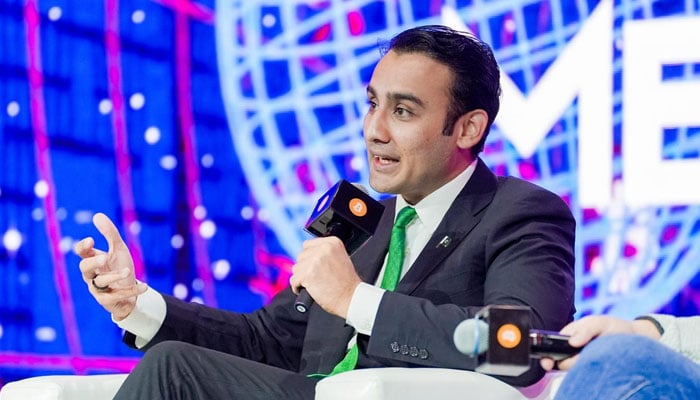Copyright International Business Times

In a bold declaration underscoring America's tightening grip on artificial intelligence technology, President Donald Trump has announced that Nvidia's flagship 'Blackwell' AI chip will be reserved exclusively for US customers. Speaking during an interview on CBS's 60 Minutes and later aboard Air Force One, Trump said, 'The most advanced, we will not let anybody have them other than the United States. We don't give the Blackwell chip to other people.' The statement marks a significant escalation in US export controls, effectively signalling that the world's most powerful AI processors will not leave American shores. A Strategic Shift in Export Policy The Blackwell-generation GPU, widely regarded as a breakthrough in high-performance AI computing, is central to next-generation large language models, autonomous systems, and supercomputing applications. Trump's comments represent a hard-line shift from earlier 2025 policies, which had permitted scaled-down exports to select allies while maintaining strict bans on China. Although Nvidia recently confirmed plans to deliver 260,000 Blackwell units to South Korean firms like Samsung, Trump clarified that the 'most advanced' variants will be exclusive to US deployment. Analysts say the decision marks the clearest sign yet of a 'national security-first' AI strategy, aimed at safeguarding America's technological edge. Geopolitical and Corporate Stakes The decision comes amid intensifying US–China competition for dominance in AI and semiconductor technology. Washington policymakers have long warned that exporting high-end AI chips could bolster China's military and cyber capabilities. A recent RAND Corporation report cautioned that sharing even downgraded versions of advanced chips could 'erode US superiority by half or more.' For Nvidia CEO Jensen Huang, the policy presents a dual challenge: maintaining global growth while aligning with U.S. security priorities. China accounted for roughly13% of Nvidia's total revenue in 2024, but Huang confirmed that the firm has not applied for new export licences for Blackwell chips, citing ongoing regulatory uncertainty. Despite these limits, Nvidia's market capitalisation has surged past $5 trillion, fuelled by optimism about America's AI dominance. Industry Implications and Innovation Risks Restricting exports of the Blackwell chip may reinforce America's AI supremacy but could also disrupt global innovation ecosystems. Economists argue that cutting international access to high-end processors risks fragmenting supply chains and slowing collaborative research in areas such as climate modelling, medical AI, and advanced robotics. Industry analysts warn that China could retaliate with export bans on rare earth minerals, which are critical to semiconductor production. Meanwhile, US allies — including South Korea, Japan, and the EU — are expected to lobby for exceptions to maintain access to Nvidia's AI infrastructure. What Comes Next? If implemented formally, the US government may introduce tiered export licences, differentiating between domestic, allied, and restricted markets. Nvidia is reportedly evaluating multi-tier product lines, including a US-exclusive flagship and a scaled-down export version to avoid total market decoupling. For Beijing, the announcement could accelerate investment in homegrown AI chip manufacturing, intensifying China's bid for technological self-sufficiency. As one analyst told Bloomberg, 'America's message is clear — AI supremacy is not for sharing.' Whether this strategy secures US leadership or sparks further fragmentation remains to be seen. What is clear is that 'America First' now extends deep into the heart of artificial intelligence.



